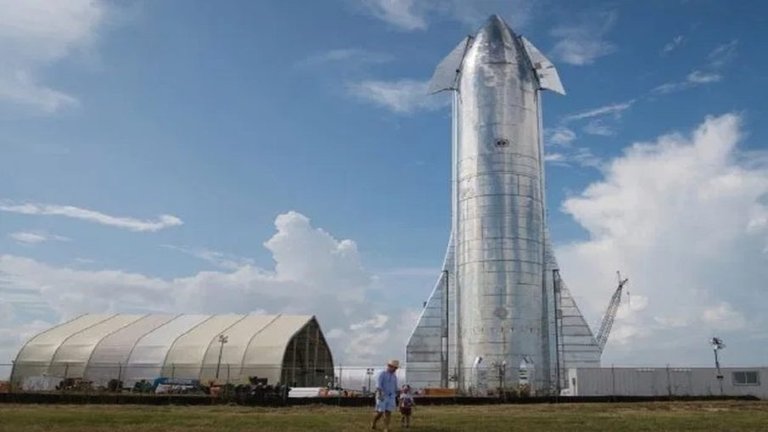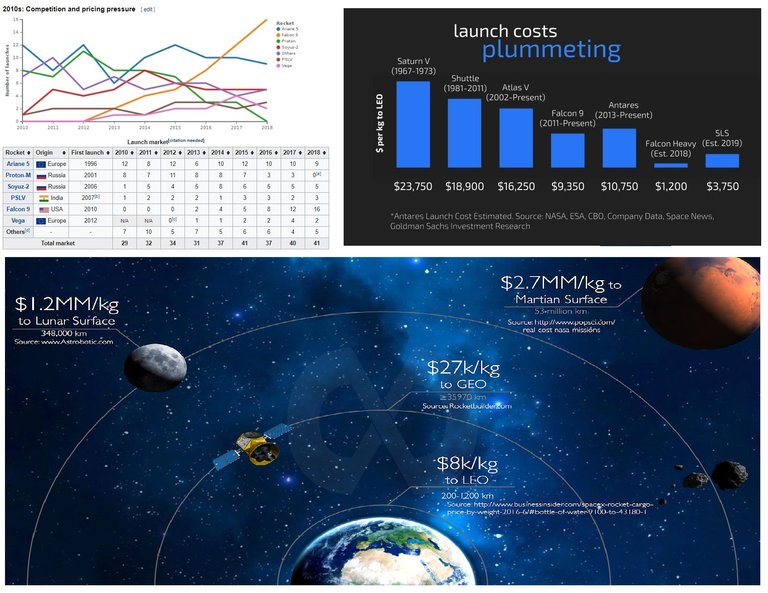
Link: https://newsforecasters.com/2019/11/12/elon-musk-dreaming-again-really-budget-space-travel/
For as long as human civilization has existed, we have always sought to explore the world around us. Our innate desire for exploration and discovery is what makes us unique as a species. You have to love Elon Musk's inspiration. He claims he can make space travel costs to be 1% of current NASA launches.
Elon's dreams are just a tiny fraction of what existing launches costs are today. On average, NASA spends an average of $152m per launch - meaning that, if Musk is to be believed, SpaceX will be able to launch cargo and people into orbit for about $2m a launch - or bundle it one big launch to get the same cost savings. SpaceX has proven that you can get to space on the cheap, by bringing down the cost of launch by a factor of 10, from hundreds of millions of dollars to tens of millions of dollars - but can we really get cost down by yet another factor of 10 in a reasonable time frame?
A critical component of launch vehicles and a significant factor in maximizing payload capacity are composite pressure vessels (CPV). These tanks are used to store propellant fuel and also function as pressurant tanks. CPVs are also used in satellites and probes as part of the spacecraft propulsion system. They’re also used as oxygen storage tanks in orbiting space stations. The economics of launches are highly sensitive to vehicle weight. For example, for every kilogram saved on a rocket traveling to low earth orbit, this would translate to a savings of $8,000 per kilogram on the overall launch costs - see inset chart. Therefore, CPVs need to be as lightweight as possible yet strong enough to withstand the demands of pressurized fuel storage.The SpaceX Starship Heavy will be able to carry up to 100 people to the moon, Mars, or other destinations in space or around Earth, Elon said - see featured image. It will stand 387 feet (118 meters) tall and be completely reusable, with quick turnarounds. "This is the fastest path to a self-sustaining city on Mars," Elon said, referring to the Starship Super Heavy architecture. Musk has said, that Mars has remained the true objective - making humans an interplanetary species.
We have all seen many technologies go from some ridiculous cost down to nothing. Isn't space travel the same? Well, yes, partially, but there are limits to the laws of nature. Our current chemical-based rocket fuels have limits in terms of weight ratios to efficiencies of the rocket systems to escape the gravity of our planet. Then materials used in rocket engines can only burn so hot before disintegrating - 4000C. The size of a rocket also presents an issue in terms of material strength as they get bigger. Let's not even consider the safety issues for the common space traveler sitting on top of a highly flammable gas can. For sure, advanced chemical fuel, stronger lighter materials, and better designs can make a difference. But one does reach a point of diminishing returns.
Maybe Elon can get his rocket to Mars for research purposes, and not to be a "Debbie Downer," but News Forecasters predicts that we will not see any chemical-based rocket system enable interplanetary travel for common people. The SpaceX Starship Heavy will become an Albatros in a space museum. The reality to achieve this, we will need some non-chemical propulsion system to get into space.
There are people working on this (another link) - electrothermal, ion drives, solar sails, plasma propulsion engine, thermal fission, pulsed fusion, nano-spacecraft, and antimatter technologies, just to name of few. All are yet to be fully developed to be considered a viable replacement for today's chemical-based rocket systems. Unfortunately, News Forecasters believes that any actual breakthroughs and usage commercially are at least 20 years away from reality - but for sure, work should start. So unless you are a billionaire, don't book your ticket just yet.
In the meantime, Elon will give us quite a show and provide useful applicative space technology developments. He will need to wait until some government-funded research program does the pure research, so he can then pick the technology up on the cheap and commercialize it.
